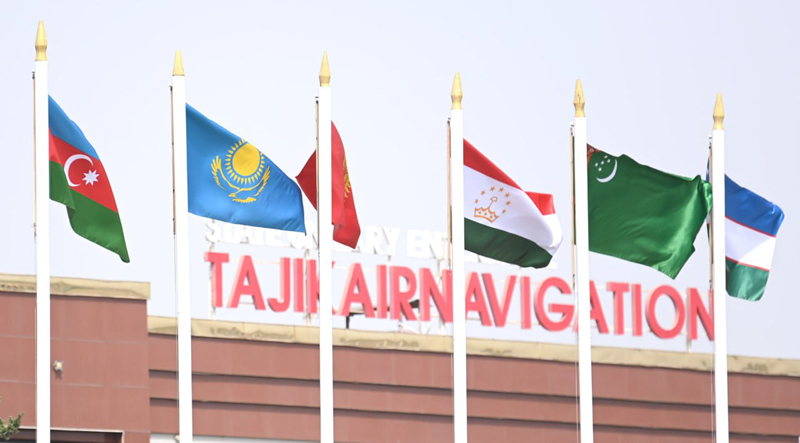 Uzbekistan
Uzbekistan
Uzbekistan and Central Asian Countries strengthen regional consolidation
Recently, on 14 September 2023, the fifth summit of the Consultative meeting of the heads of state of the five Central Asian countries was held in Dushanbe, Tajikistan.
The idea of establishing this Consultative Meeting as a regional platform for dialogue was proposed by the President of the Republic of Uzbekistan HE Shavkat Mirziyoyev, immediately after his election as President at the end of 2016.
President Mirziyoyev also declared the development of regional cooperation as a top priority of Uzbekistan’s renewed foreign policy.
With Uzbekistan at the centre of this mechanism, after more than five years, the mechanism of the Consultative Meetings of the Heads of Central Asia has become a powerful promoter of regional cooperation and integration.
The results of the recent summit at Dushanbe, show that, the format of the Consultative meetings demonstrates sustainability, despite the emergence of new challenges in the region.
It also helps improve dialogue between Central Asian countries and reach agreements on key issues.
The presence of the leaders of all five countries at the meeting, as well as the proposals and initiatives they put forward for further development of regional cooperation, indicate that they take the format of the Consultative meetings seriously and the agenda of the summit further illustrates it.
The following issues were part of the Agenda: development of trade and economic cooperation; strengthening transport connectivity, especially taking into account the geographical isolation of Central Asia; stimulating energy cooperation and improving relations between the countries of the region in the field of joint use of transboundary water resources, keeping in mind the fact that, the region is mainly fed from two large rivers- the Amudarya and the Syrdarya, flowing through all five countries.
President Mirziyoyev was at the centre of this summit and much attention was given to his speech which is quite understandable, as he is the initiator of this Consultative mechanism. And he still continues to inspire all others in the process of modern Central Asian integration.
In this summit, he once again introduced some bold initiatives, like the creation of the Economic Council and the Free Trade Zone in Central Asia.
He also proposed to conclude an Agreement on Transport and Transit Regime in order to strengthen intra-regional transport connectivity in central Asia in order to regain its historical role as an important transport and transit hub of Eurasia.
President Mirziyoyev described this in his speech: “Our region is becoming one of the important centres of economic growth and investment activity, once again regaining its historical role as a transport hub connecting West with East and North with South.”
Indeed, it is common knowledge that for more than two thousand years ancient and brilliant cities such as Samarkand, Bukhara, Khiva and Tashkent, located now on the territory of modern Uzbekistan, in earlier times served as the main transit points for various branches of the Great Silk Road.
It is also worth noting that President Mirziyoyev during his presidency, has managed to achieve some enormous progress in matters of regional cooperation, which otherwise seemed impossible just a few years ago.
And one of the most important contributions of his in this regard is Uzbekistan’s significant progress in demarcating and delimiting borders with neighbouring countries.
This achievement has contributed in a big way to the current positive processes of regional consolidation in Central Asia.
This was one area where problems and disagreements accumulated over the years, which had actually become a bone of contention between nations in the region that hindered the development of regional cooperation.
By resolving border issues successfully, Uzbekistan has demonstrated its commitment to regional integration and cooperation. Moreover, Uzbekistan has not only focused on resolving its own border problems, but has also played a constructive role in helping its neighbours resolve their border disputes.
Thus, the active position of Uzbekistan and its willingness to find solutions, in particular, border problems between Kyrgyzstan and Tajikistan inspire neighbours and inspire hope for strengthening regional integration and cooperation.
The efforts undertaken by Uzbekistan and its leader to strengthen regional consolidation are designed to contribute to the overall stability and development of Central Asia, strengthening its strategic autonomy in the context of the formation of a new global order.
And for India, as an active supporter of a multipolar world order and implementing the “Central Asian Connectivity” strategy, it is important to continue to support the countries of Central Asia in their quest for regional integration. Enhanced cooperation among the Central Asian countries will also be beneficial for India’s interests.
Support Our Journalism
We cannot do without you.. your contribution supports unbiased journalism
IBNS is not driven by any ism- not wokeism, not racism, not skewed secularism, not hyper right-wing or left liberal ideals, nor by any hardline religious beliefs or hyper nationalism. We want to serve you good old objective news, as they are. We do not judge or preach. We let people decide for themselves. We only try to present factual and well-sourced news.







